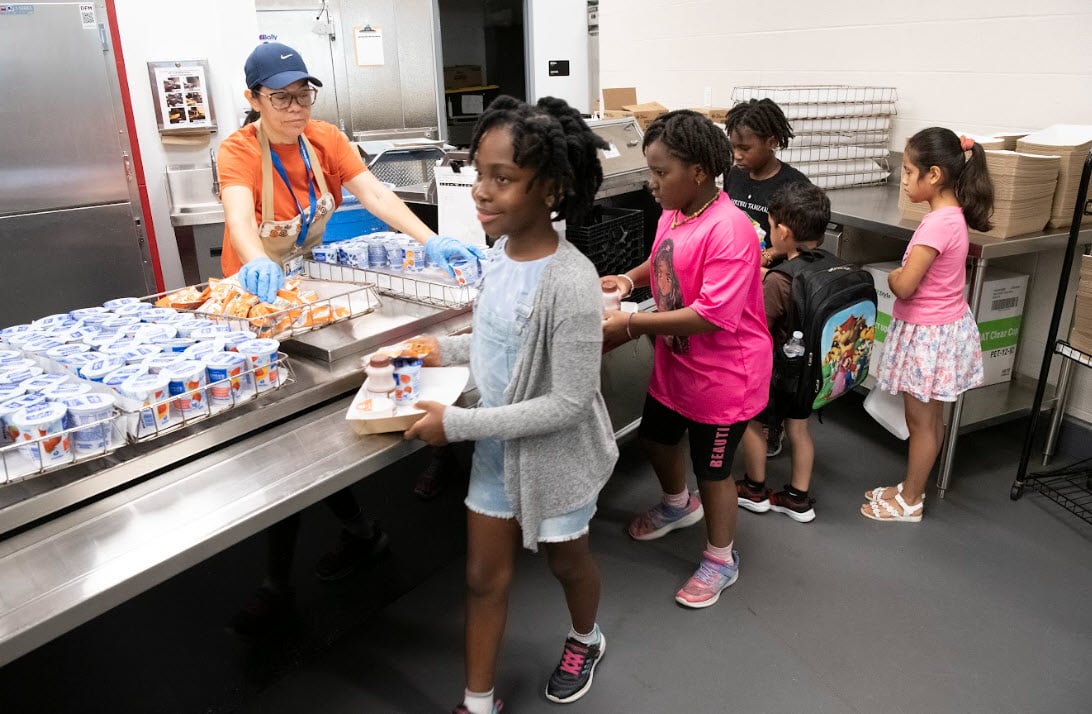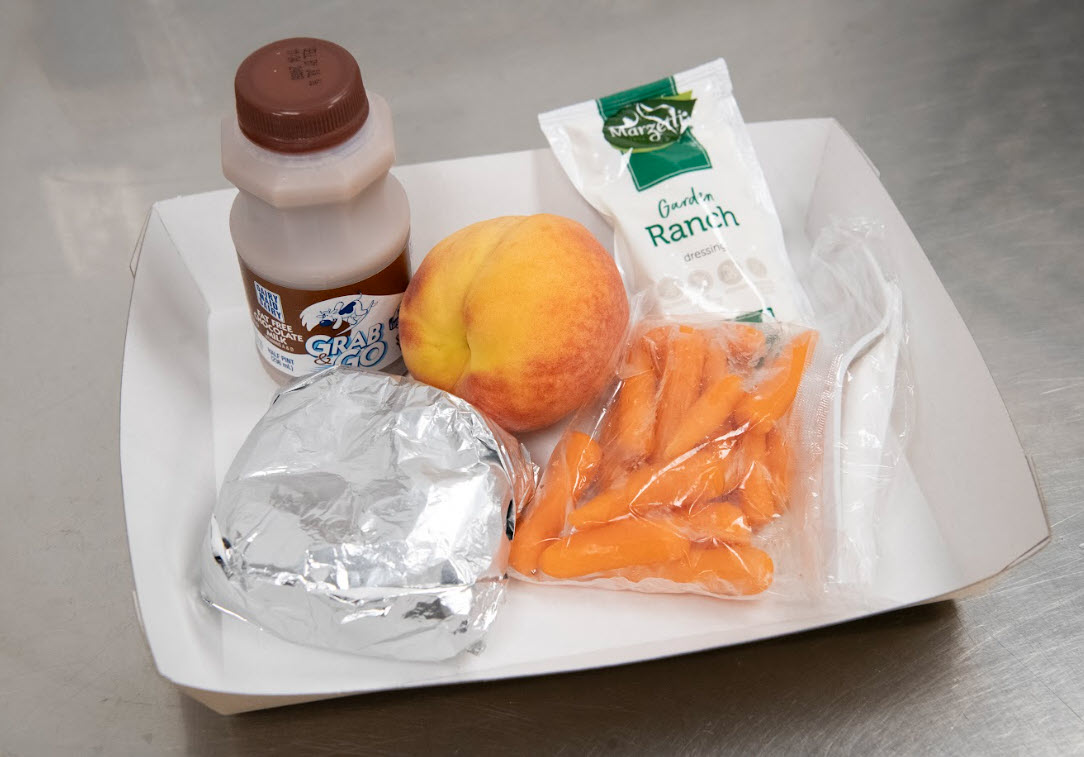 MONTGOMERY COUNTY PUBLIC SCHOOLS
MONTGOMERY COUNTY PUBLIC SCHOOLS
 MONTGOMERY COUNTY PUBLIC SCHOOLS
MONTGOMERY COUNTY PUBLIC SCHOOLS
The School Breakfast Program (SBP) is a federally funded program that began as a pilot based on the belief that good nutrition is essential for learning. Research has consistently linked eating breakfast to positive outcomes for children, including improved brain function and academic performance. The MCPS Department of Food and Nutrition Services (DFNS) operates the SBP, providing an opportunity for more than 160,000 students across over 200 schools to eat a nutritious breakfast each day.
DFNS utilizes different models of breakfast service depending on the school each child attends.
The Maryland Meals for Achievement (MMFA) breakfast model provides a complete breakfast for students to eat in the classroom. In elementary schools, after arriving at school and making their way to the classroom, students select the entree, sides, and milk of their choice to enjoy during morning instruction. In middle and high schools, serving models are unique to each school setting.
The traditional serving line model provides a complete breakfast to students in the setting of the cafeteria serving line. After arriving at school, students go to the cafeteria to select the entree, sides, and milk of their choice to enjoy before morning instruction.
Breakfast kiosks provide students an opportunity to select a complete breakfast in a setting inside of the school but outside of the cafeteria. Students select the entree, sides, and milk of their choice from a central location to help facilitate greater breakfast access throughout the school.
DFNS offers a variety of nutritious and filling breakfast entrees, fruits, and milk choices. Menus can be found here, by selecting each child’s school, and navigating to the “Breakfast” drop-down option.
The National School Lunch Program (NSLP) is a federally funded program that helps schools provide balanced meals with nutrient-rich foods to children. DFNS operates the NSLP, providing nutritious, low-cost, or free lunches to students each school day.
Meal Pattern Requirements
To promote optimal health and wellness, every lunch offers five meal components including a protein, grain, milk, fruit, and vegetable. The amount and types of components offered meet meal pattern requirements that vary by grade level.
The At-Risk Afterschool Meals component of the Child and Adult Care Food Program (CACFP) offers federal funding to afterschool programs that serve a meal or snack to children in low-income areas. DFNS provides afterschool snack and supper programs to children at no cost in a safe space to engage in structured activities with friends and supportive adults.
Schools may participate in the CACFP afterschool meal program if:
The Summer Meals Program is designed to provide nutritious meals at no cost to children 18 years old and younger. Our Summer Meals Program is designed to bridge the “nutrition gap” when school is out.
The MCPS Department of Food and Nutrition Services is the summer food service sponsor in Montgomery County and about 9,500 children are served at approximately 120 locations each day.
Our goal is to provide meals to as many children as possible!
Click here to view the list of 2025 summer food service meal sites. No appointment is necessary. However, meals must be eaten at the location.

English | español | français | 中文 | Portuguese | 한국어 | tiếng Việt | አማርኛ
English | español | français | 中文 | Portuguese | 한국어 | tiếng Việt | አማርኛ

Contact the Department of Food and Nutrition Services at 240-740-7400.
You will be scheduled to attend a training to learn how to order, store, and distribute meals.
Click here to view the list of summer food service meal sites. These sites are open for meal service to anyone 18 years of age or younger during the dates and times listed. No appointment is necessary, however, meals must be eaten at the location. This list is updated frequently, please check back for updates and changes.